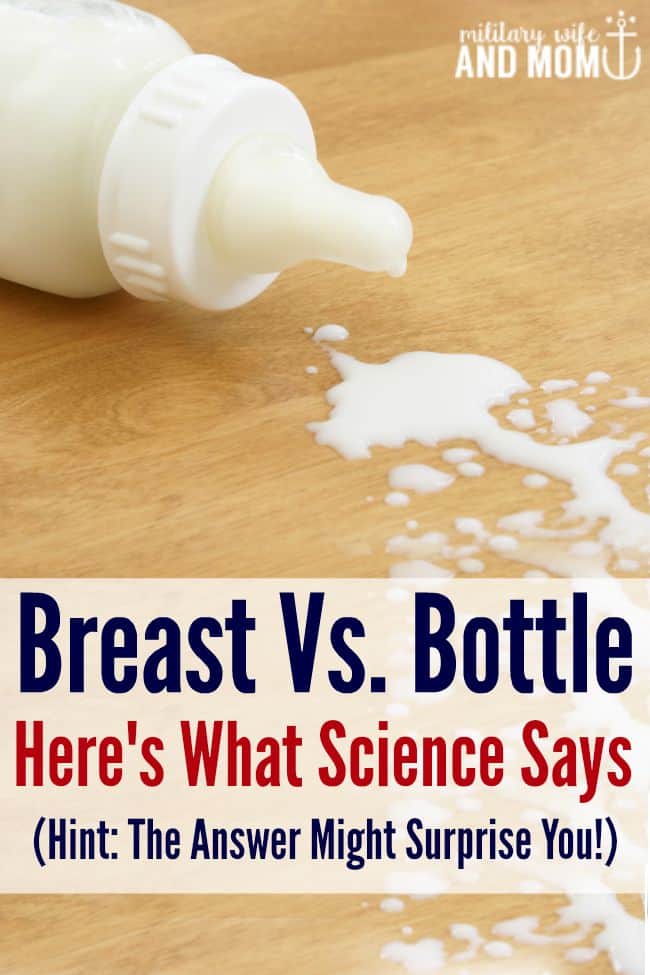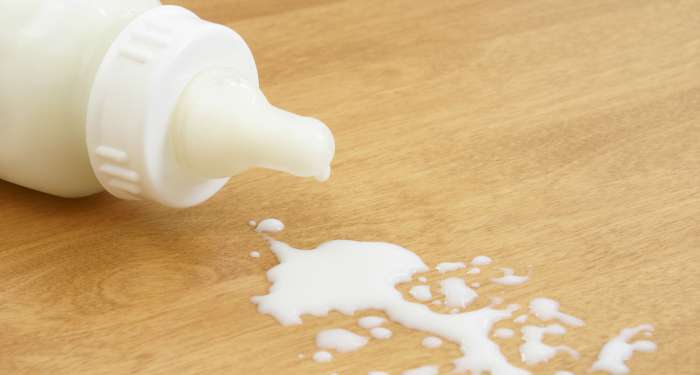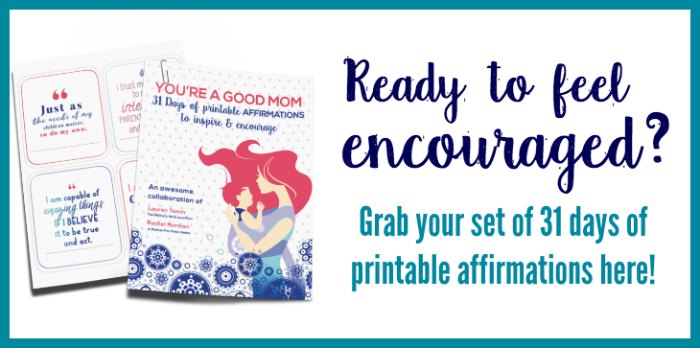There are so many controversial topics in the parenting community. Why? Because parenting decisions are deeply rooted within intense emotions and personal experience. The top controversial topics in parenting that come to mind are breastfeeding, baby sleep tips, potty training, and of course, the heated vaccine debate. There are more of course, but those seem most prevalent these days.
As a sit here in the last weeks of my third trimester with baby number two, I cannot help but think about the great breastfeeding versus formula debate. On the one side, there are the moms who breastfeed well into the toddler years. On the other side, there are the moms who do not breastfeed or are not able to breastfeed at all. Between the two sides, there are the moms who fall somewhere in the middle.

*post contains affiliate links
Regardless of your choice as a parent, I think we are often wrecked with guilt over our choices. I, for one, often feel like a selfish mom. We all want the best for our children, and wanting the best and seeing it to fruition is easier said than done.
But what if we looked at what science and actual research said about breastfeeding vs. formula feeding rather than because someone simply said so?
As a long time follower of the blog, Science of Mom, I recently had the pleasure of buying Alice Callahan’s first book aptly named The Science of Mom: A Research-Based Guide to Your Baby’s First Year. I was beyond elated when the book arrived at my mailbox. Filled with intrigue in curiosity, I too wanted to know the answers to all the tough controversial parenting questions surrounding a baby’s first year.
Where should my baby sleep?
When should we cut the umbilical cord?
What is the truth about babies and vaccines?
And of course…
What is does science say about breastfeeding vs. formula feeding?
A brief history on breastfeeding mother’s.
One of the greatest arguments for breastfeeding is that it is completely natural. In the past, breastfeeding was the only option…right? Well, not exactly. For those who believe that all mothers make enough milk to support their baby, we know this is simply not true. Since the beginning of time there were mothers who could not successfully breastfeed their children due to low supply, latching issues, or a baby’s inability to gain weight from a mother’s milk.
What exactly did mothers in the 1800s do when they could not breastfeed?
They got a wet nurse or another family member to breastfeed their babies. Basically, another lactating woman would nourish the baby with her breast milk if the mother could not. If that wasn’t possible, babies were given cow’s milk or homemade formula using evaporated cow’s milk, water and Karo corn syrup. This is documented as early as the late 1800s and early 1900s (p. 73-74).
What are the physiological benefits of breastfeeding vs. formula feeding?
From a purely physiological standpoint, babies who are breastfeed during the first year of life experience a reduced incidence of gastrointestinal, ear and respiratory tract infections. “Breastfed infants seem to have a 25%-75% reduction in infections, with better protection associated with exclusive breastfeeding.” The main reason babies experience a reduced rate on infection is breast milk transfers immunity from the mother to the baby.

Regarding ear infections, breastfeed babies experience a reduced risk likely because “breastfeeding requires the baby to create strong pressure in a rhythm suck, swallow, breath pattern, and this is thought to keep the Eustachian tube in the inner ear aerated.”
Science also shows that breastfed babies experience a 50% reduced risk of SIDS (sudden infant death syndrome). And lastly, breastfed babies have a lower risk of experiencing a very rare condition called necrotizing enterocolitis, in which the intestinal tissue dies (p. 77-78).
What about the emotional and attachment benefits of breastfeeding vs. bottle feeding?
While the book Science of Mom does not go into great detail on this topic, it does seem that breastfeed babies, bottle fed babies and formula fed babies experience equal outcomes in terms of attachment and emotional bonding.
The act of holding your baby, comforting your baby, and feeding your baby when they are hungry is really the foundation for establishing a strong emotional bond. It’s the constant way we—as parents—communicate to our babies that we are here for them and that we will meet their needs.
What are the long-term outcomes of breastfed vs. formula fed children?
This is an area where we do not have all the answers and more research is needed. Here is a list of conclusions we can draw currently:
— In one study comparing siblings who were formula fed vs. breastfed, there was little difference to how they turned out later in childhood (p. 78-79).
— Another study found that breastfed babies may experience fewer bouts of diarrhea and lower rates of eczema in the first year of life. When the children were seen again at age 6.5 and 11, there was no difference in BMI, obesity, blood pressure, asthma, behavior difficulties or rates of dental cavities (p. 80).
— One more study found that while breastfed babies may experience a reduce incidence of asthma in the early years, they may actually experience an increased risk of asthma later in life.
What’s the big picture?
This is a small glimpse into the science behind the breastfeeding vs. bottle vs. formula feeding debate. The book Science of Mom goes into far greater detail, including how to properly look at infant feeding research, the limitations of scientific studies, as well as cultural barriers and facilitators to breastfeeding.
Need some encouragement, mama?
Try these printable affirmation cards to fill your heart with contentment and happiness.

Here are a few conclusions that we can draw:
— Not every mother is physically able to breastfeed her baby. Lack of milk supply, latching issues, poor infant weight gain, illness, adoption, surrogacy, and beyond are all possible reasons a mother may not breastfeed.
— Breast milk is better for infants during their first year of life. It offers protective benefits to the baby’s health in infancy.
— In the long term, there do not appear to be significant differences among formula fed babies vs. breast milk fed babies.
— It’s also important to note that note all formulas are not created equal and parents should do their research before choosing a formula.
— Lastly, there is no significant difference in emotional attachment among breast fed vs. formula fed babies.
P.S. If you are interested in reading more from TheScience of Mom Book, you can click the link to see it on Amazon. And if you are interested in following along with Alice, you can visit her blog Science of Mom.
Want more on motherhood?
Original article and pictures take themilitarywifeandmom.com site
Комментариев нет:
Отправить комментарий